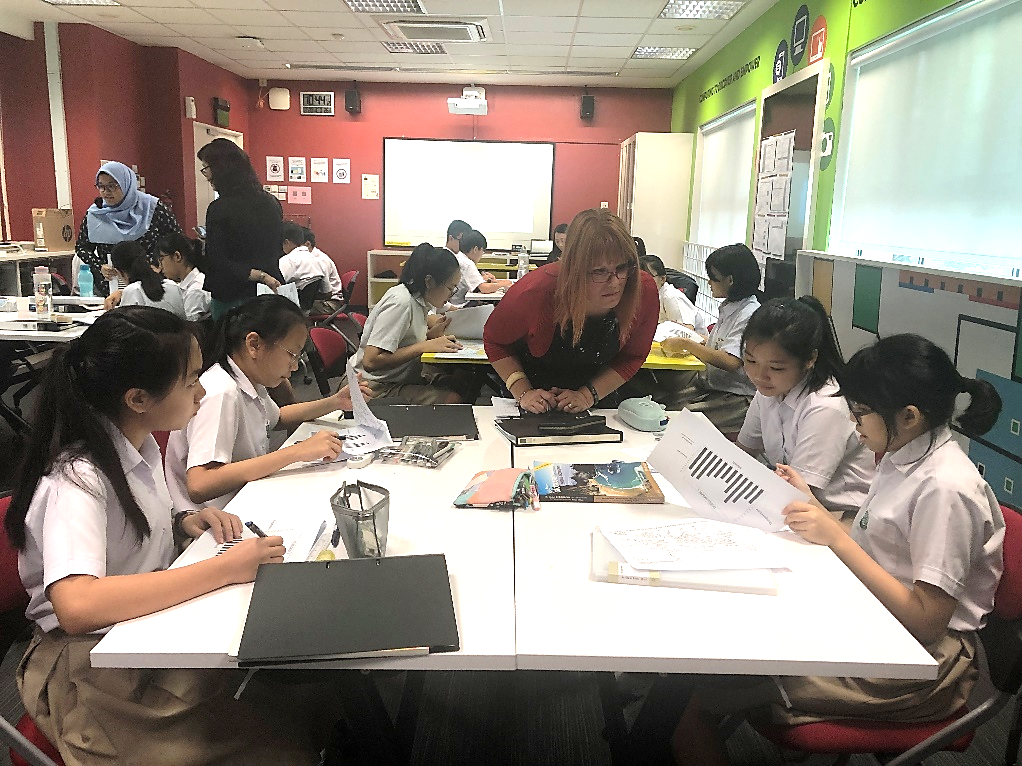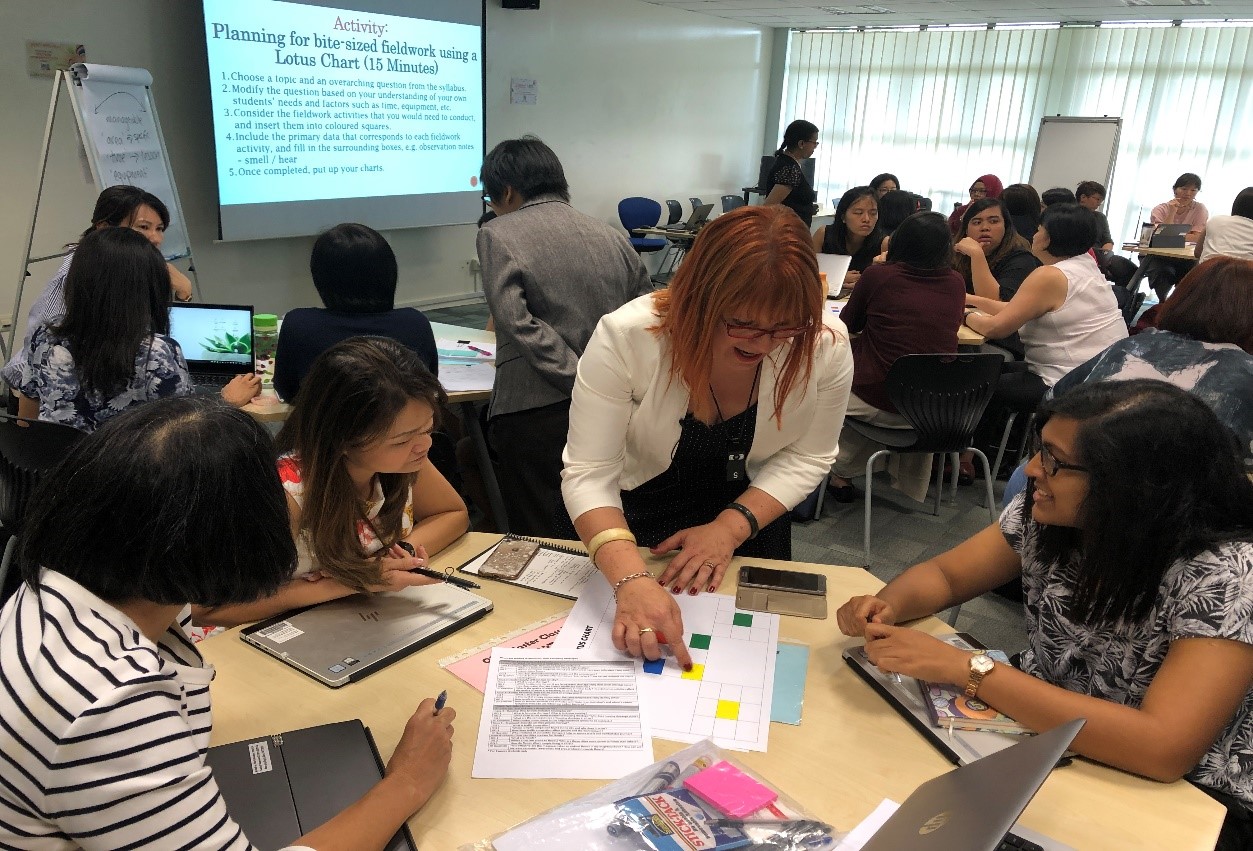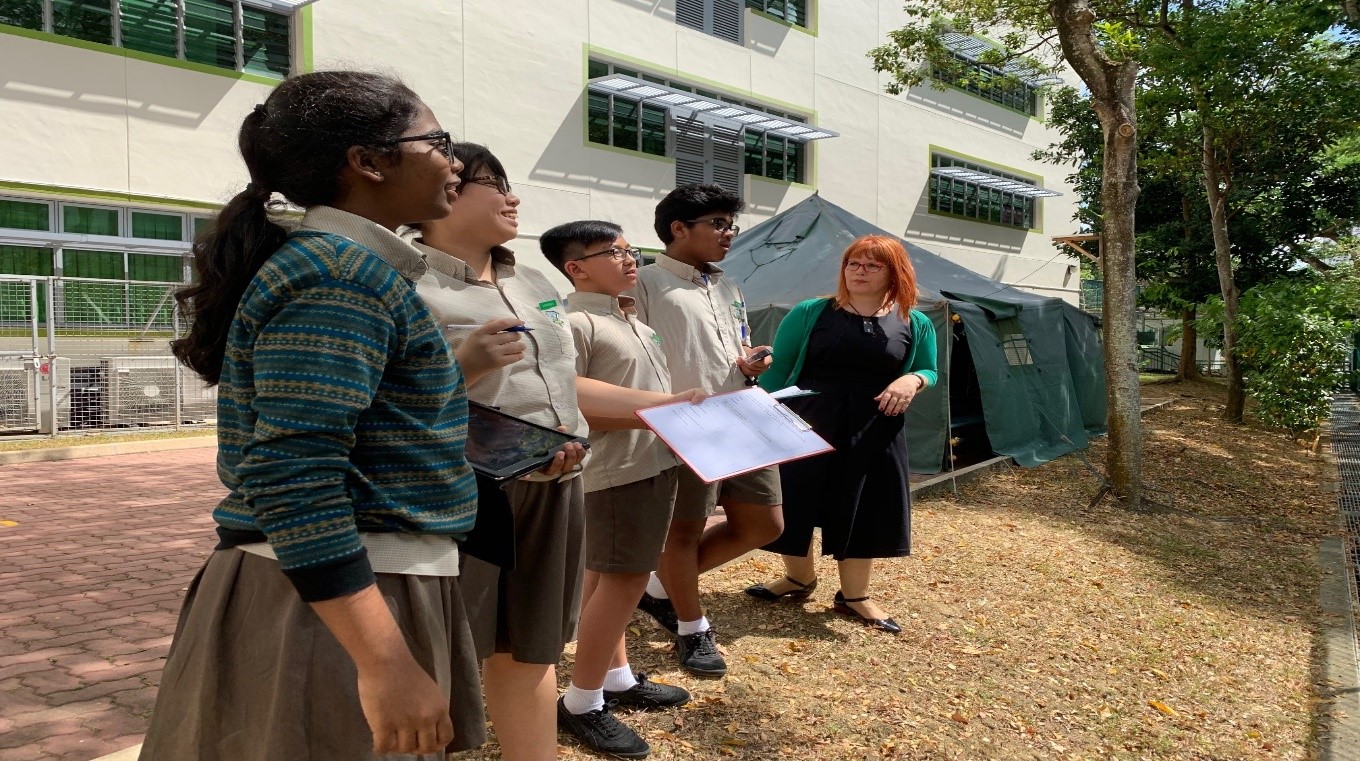Ms Susan Caldis (11 to 28 February 2019)
Ms Susan Caldis (11 to 28 February 2019)
AST’s 25th OEIR
Ms Susan Caldis is a faculty tutor for pre-service teachers for geography methodology and pedagogy courses at Macquarie University in New South Wales, Australia. Prior to being a faculty tutor, she was the Head Teacher for Human Society and its Environment (HSIE) at Castle Hill High School, New South Wales and Northern Beaches Secondary College (NBSC) Balgowlah Boys Campus, New South Wales between 2002 and 2016.
Ms Caldis was awarded the Outstanding Service to the Profession award in 2015 by the Professional Teachers’ Council of New South Wales and the Geography Teachers Association of New South Wales (GTANSW) for sustained and outstanding service to geographical education and the professional association. She also received the Geoff Connolly Award for outstanding contribution to the Geography Bulletin – a journal of the GTANSW, on the development of a national curriculum for geography, and for the teaching, learning and assessment of geography from Kindergarten to Year 12 in 2017.

Ms Caldis specialises in the use of inquiry based learning and fieldwork in teaching geography. During her stint with AST, she conducted four Master Classes for secondary and junior college Geography teachers. Her Master Class titled ‘Big Ideas, Key Questions and Lotus Charts: Designing Student-centric Geographical Inquiry and Fieldwork’ aims to equip teachers with strategies for planning and implementing a Geography lesson that would incorporate
1. the co-construction of an inquiry question with students;
- a series of short fieldwork activities to collect data and information; and
- the synthesise and analysis of the data and information in response to the inquiry question.
The lotus chart – a thinking tool, and proforma were also introduced to teachers. Teachers could use these tools to help students organise their thinking, appreciate different perspectives, develop their decision-making capabilities, and communicate their understanding effectively.

During the Master Class, teachers had the opportunity to collaborate with one another to develop bite-sized fieldwork activities which they could carry out during their geography lesson.
Ms Caldis also had the opportunity to visit four schools: Bedok Green Secondary School, Clementi Town Secondary School, Singapore Chinese Girls School and Yishun-Innova Junior College, where she observed how secondary and junior college geography lessons were taught. After each lesson observation, Ms Caldis engaged in a dialogue with the teacher to understand their considerations in planning the lesson, clarified any queries she had and offered feedback and exchanged ideas on ways to further engage students through fieldwork in subsequent lessons. She also had the opportunity to teach a Secondary 2 class in Bedok Green Secondary School where she demonstrated how bite-sized fieldwork could be carried out in a fifty minutes lesson.

From her school visits, Ms Caldis observed that a positive classroom culture was evident in Singapore schools and teachers enjoyed strong rapport with their students.
Other than the Master Class and school visits, Ms Caldis also participated in dialogue sessions with Teacher Leaders, KPs as well as colleagues from CPDD and NIE. Through the discussion, she saw parallels between teacher education in Singapore and Australia in terms of the emphasis placed on adopting an inquiry-based approach to teaching geography. She was also heartened by how teachers are increasingly exposed to, and passionate about, the conduct of fieldwork as an integral component of geography pedagogy.
We are honoured to have the opportunity to interact and work with Ms Caldis through the OEIR programme and we would like to thank her for being very generous in sharing articles and podcasts that she has done with teachers.

